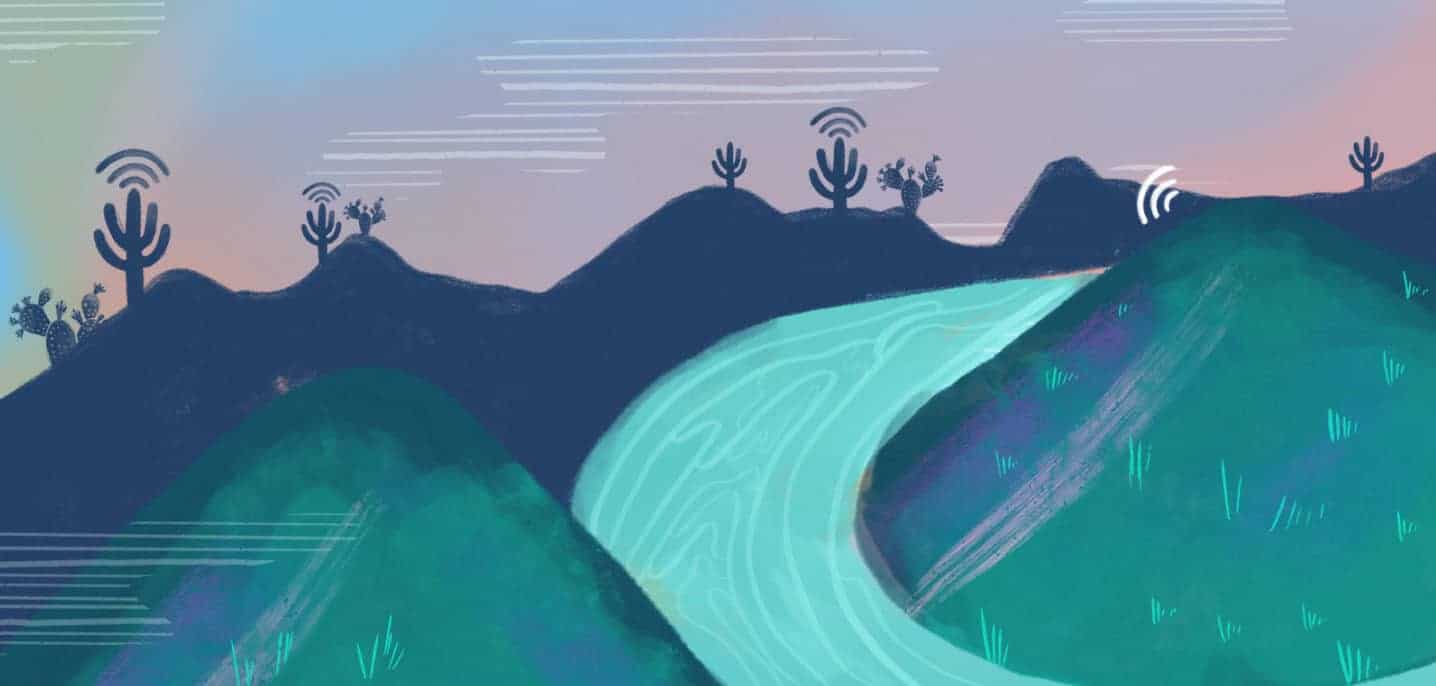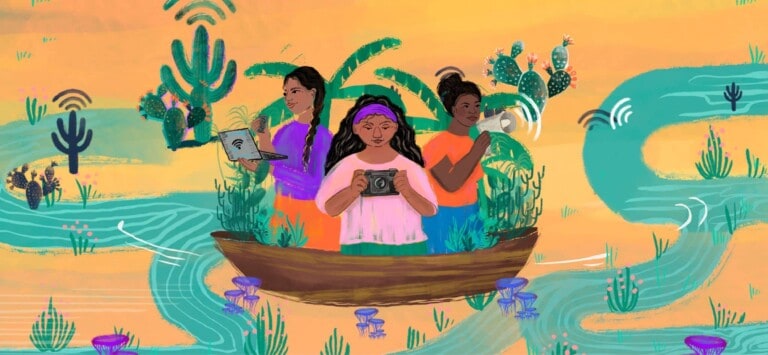
Working towards healthier information ecosystems

This site is part of a broader project, conducted by The Engine Room and supported by Open Society Foundations, to contribute to building stronger, healthier ecosystems in Latin America and the Caribbean.
It is a response to concerning trends we have been witnessing in relation to digital technologies’ role in shaping information ecosystems in Latin America and the Caribbean – from political polarization, to information disorder, to digital surveillance, to attacks on media and journalists.
It is also a reflection and exploration of how civil society across these regions has been working to build more robust information ecosystems.
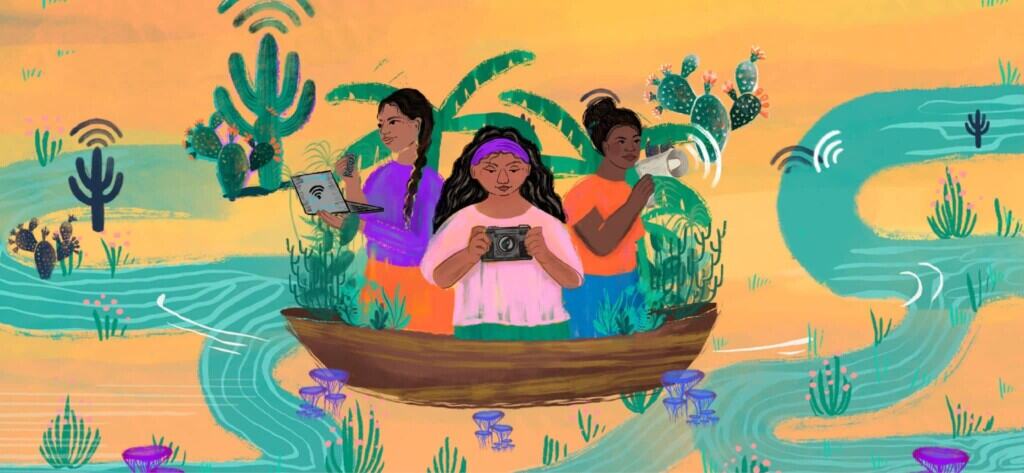
Hearing from civil society in Latin American and the Caribbean
Between September 2023 and March 2024, we conducted research focused on learning from civil society in the region about their efforts to build healthier information ecosystems.
During this phase, we engaged with over 70 individuals, including representatives from civil society organizations, social justice movement organizers, digital rights activists, journalists, academics, and members of philanthropic institutions. They shared with us the creative and transformative ways in which they are fostering more balanced creation, exchange, flow, and use of information.
In November 2024, we met in person in Chile with 11 representatives from various sectors of the Information Ecosystem. We discussed our research findings, explored strategies already being implemented in our projects to improve the ecosystem’s health, and brainstormed new ideas to further advance our efforts.
The content presented here is inspired by their valuable insights, and we are deeply grateful to each of them for their work and generosity
Lessons learned and ideas for the future from the in-person event
Collective visions for stronger information ecosystems for Latin America and the Caribbean
What do we dream of when we dream of healthy, balanced information ecosystems?
That question has guided many of our conversations with technologists, organizers and, journalists throughout this project.
In the course of our research and In-person event, many of the individuals who engaged with us shared their hopes, ideas and, visions for what a thriving information ecosystem that sustains social justice could look like. Many of these ideas have been cultivated over decades, and we appreciate the opportunity to collect and share them here.
Below are some of the key elements of these visions for the future included in our research report and a couple added in our in-person event.
People’s information needs are prioritized and local, community-led information initiatives are thriving
In healthy, robust information ecosystems, peoples’ most immediate information needs are effectively addressed (including the information needs of those who have been historically marginalized!). In these ecosystems, local, community-led information initiatives are thriving and people have access to reliable, quality information about what is going on in their cities and neighborhoods.
The funding to support local information ecosystems no longer feels scarce; instead, it flows abundantly to community-driven initiatives.
Journalists, activists and popular communicators are safe
In balanced information ecosystems, the safety of popular communicators and journalists is prioritized. As these individuals investigate, report, and inform, their work is no longer compromised by threats and attacks to their integrity (both physical and digital), and they have plenty of support in staying safe as well as the tools, knowledge and resources they need to maintain their digital security.
People enjoy a sense of community and there are spaces for meaningful conversations that strengthen democratic processes
Strong information ecosystems are those in which people can engage in meaningful conversations that allow for deliberation and civic debate. In this scenario, people also experience less isolation and alienation from each other, and the “us vs them” sentiment that has become prevalent in so much of LAC is no longer as strong.
The information ecosystem includes a diversity of actors
In robust information ecosystems funding, support and resources are abundantly available to a broad, diverse set of civil society organizations, activists and journalists, who work to sustain healthy and democratic flows of information through diverse, complementary, and collaborative approaches.
The initiatives best equipped to understand communities’ information needs and improve their local information ecosystems are no longer struggling to access funding – they also aren’t worried about not getting as much funding as “harmful actors”, and they hold the power to decide their own priorities and manage the funds they receive. Just as importantly, healthy information ecosystems hold space for Indigenous people, Afrolatinos, people with disabilities, LGBTQI+ people; they hold space for communities in urban settings as well as in rural areas and forest territories. Language justice is a defining feature of information creation, exchange, flow and use.
Tech infrastructure is built in ways that center social and climate justice
Researchers and organizers we engaged with throughout this research have emphasized the importance of considering the ecological and political implications of infrastructure development – including tech and information infrastructure.
In a balanced information ecosystem:
- People have more access to digital technologies that exist in harmony with climate justice, land justice, racial justice, Indigenous justice,
- Digital technologies would be used in ways that favor the creation of just information flows, and
- Communities would have autonomy and decision-making power in terms of if and how they engage with digital technologies.
Sharing learning about how various organizations are tackling the challenges they face can lead to a stronger ecosystem
Keeping in mind the contextual differences, while still recognizing common denominators between our challenges can actually make our work stronger. It means acknowledging that there are many shared root causes for the disequilibrium we see in our information ecosystems and also recognizing that though they show up in very similar ways a lot of the time, their repercussions might look a little different in each context.
Prioritising meaningful conversations
In Santiago, we’ve heard from these and other organizations who attended about how they’re working to craft reporting and build space for conversations in partnership with their audiences/their communities with the goal of amplifying the spaces we have for conversation. Considering the dynamics of attention economy and extreme polarization in the region, there was a general consensus that we need to create spaces that allow (and make it easy!) for people to engage in conversation with each other, that allow for “breaking the ideological bubbles”, that make room for diverse perspectives. And for that to happen – there needs to be robust funding flowing towards these organizations.
What this website is for, and who it is for
We hope that the findings, reflections, stories and collective visions documented here will be useful to all of those working on strengthening information ecosystems — civil society organizations, activist groups, journalists and others — not just in Latin America and the Caribbean, but also in other regions of the world.
A brief overview of the findings from our research and an exploration of strategies that have already been implemented by civil society in the region.
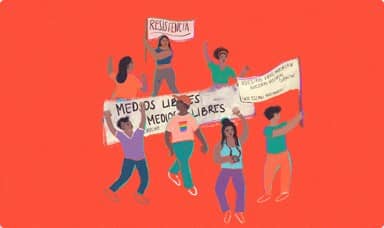
An evolving picture of what healthy, robust information ecosystems would look like for Latin America and the Caribbean, and the collective hopes, ideas and non-negotiable elements we envision as part of information ecosystems that sustain social justice.
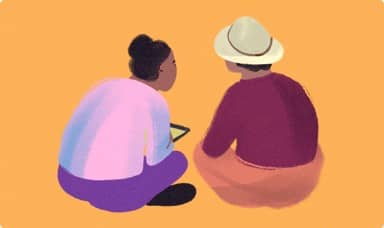
Inspiration and avenues of support for civil society organizations, activist groups, journalists and others — both in Latin America and the Caribbean, and in other regions of the world, to strengthen your work.

Download the full report
